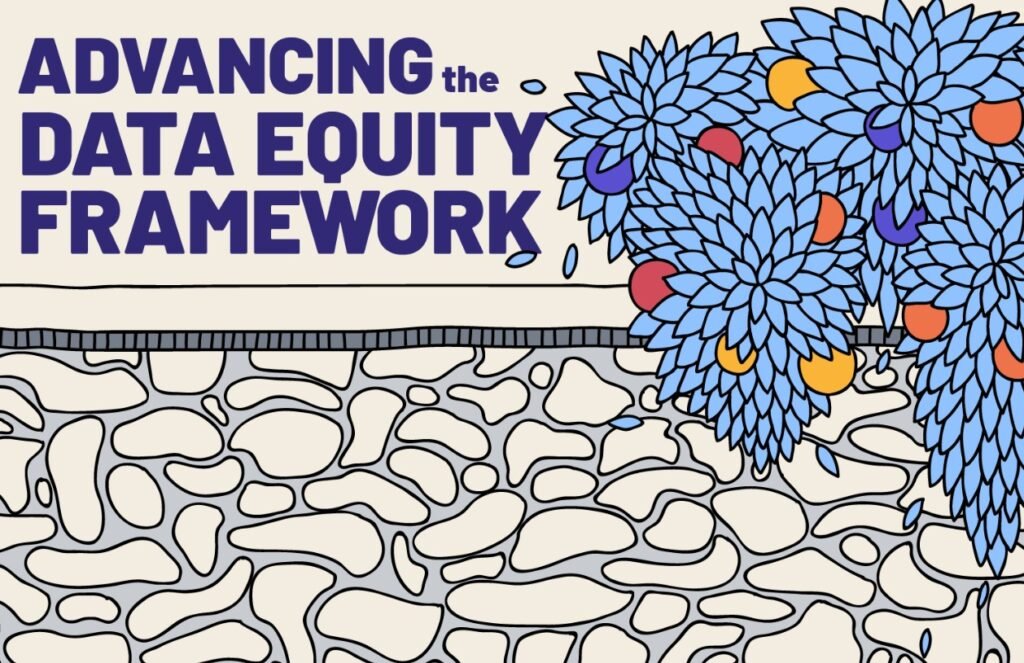Data equity is a shared responsibility that demands collective action to establish practices and systems ensuring fair and just outcomes for everyone. As data-driven systems become increasingly integral to our digital societies, it’s essential to consider their human impact. Technologies like machine learning and generative artificial intelligence (AI) are evolving rapidly, and without addressing data equity from the ground up, existing issues may worsen.
Why is Data Equity Essential in the AI-Driven Age?
In today’s digital landscape, data equity is more than just a concept—it’s a necessity. As algorithmically automated, data-based systems become more prevalent in decision-making processes, ensuring equitable outcomes becomes critical. These systems were not originally designed with equity in mind; they reflect societal varieties, historical inequities, biases, and differences.
- Human Rights Impact: Data-driven systems significantly influence human rights and access to resources and opportunities.
- Representation: Incorporating data equity ensures diverse community voices are heard and respected.
- Trust Building: Fair data practices foster trust in technology applications across society.
Data equity is vital to recognize and mitigate the material impacts of these systems on individuals and communities. By embedding equity into the design, deployment, and use of technologies, we can create a more inclusive digital future where trust in technological advancements is paramount.

Defining Data Equity: A Unified Approach
A harmonized definition of data equity is crucial for fostering alignment and collaboration. The World Economic Forum’s Global Future Council on the Future of Data Equity developed a comprehensive definition through extensive research and consultations. According to the Council:
“Data equity is the shared responsibility for fair data practices that respect and promote human rights, opportunity and dignity. Data equity is a fundamental responsibility that requires strategic, participative, inclusive and proactive collective and coordinated action to create a world where data-based systems promote fair, just and beneficial outcomes for all individuals, groups and communities.”
This definition underscores the importance of fair data practices throughout the data lifecycle—collection, curation, processing, retention, analysis, stewardship, and responsible application. It emphasizes that data practices profoundly impact human rights and access to various societal resources.
Implementing the Data Equity Framework
To transition from theory to actionable impact, the Global Future Council on Data Equity introduced an action-oriented framework. This framework guides organizations in reflecting on, researching, and implementing responsible data practices across different contexts, ensuring consistency and compliance with global regulations.
Framework Components:
| Category | Characteristics | Key Issues | Inquiry Questions |
|---|---|---|---|
| Data | Accessibility, Sensitivity | Bias in data collection, Privacy concerns | How can data be made accessible while protecting privacy? |
| People | Relationship, Accountability | Representation of diverse communities | Who owns the data, and how is it being used? |
| Purpose | Value, Trust | Defining clear objectives for data use | What is the intended outcome of using this data? |
The framework draws inspiration from existing data principles like FAIR, CARE, and TRUST, and is rooted in the Maori Indigenous data sovereignty model, the Te Mana o te Raraunga. This model emphasizes the importance of traditional knowledge-keepers in deciding when and how to share knowledge, ensuring that data practices are respectful and inclusive.
Real-World Applications: Climate Data and Beyond
Practical use cases demonstrate the framework’s utility. For example, in climate data collection and monitoring, significant gaps exist, especially in rural and remote areas in the Global South. By applying data equity practices—such as investing in data collection and community capacity-building—these gaps can be bridged, resulting in more detailed climate data. This improved data quality enables more effective climate mitigation strategies and fosters equitable access to environmental resources.
- Climate Monitoring: Enhanced data collection in underserved areas leads to better-informed policies.
- Capacity Building: Empowering local communities to collect and manage data ensures sustainable practices.
- Inclusive Strategies: Developing climate solutions that consider the needs and inputs of diverse populations.
These applications highlight how data equity principles can lead to more robust and effective outcomes, ensuring that technological advancements benefit all segments of society.
Champion and Integrate Data Equity Principles
Data equity goes beyond technical processes; it’s fundamentally about the societal impact of data on people and communities. The responsibility lies with all stakeholders to prioritize and operationalize equity at every stage of their work.
- Strategic Action: Organizations must incorporate data equity into their core strategies and operations.
- Inclusive Collaboration: Engaging diverse communities in data practices ensures representation and fairness.
- Ongoing Evaluation: Continuously assessing data practices helps identify and address emerging equity issues.
The Global Future Council on Data Equity is committed to creating a future where advanced technologies empower everyone. By ensuring that fairness and inclusivity drive both technological advancements and their real-world applications, the council aims to foster significant social advancements alongside digital transformation.
